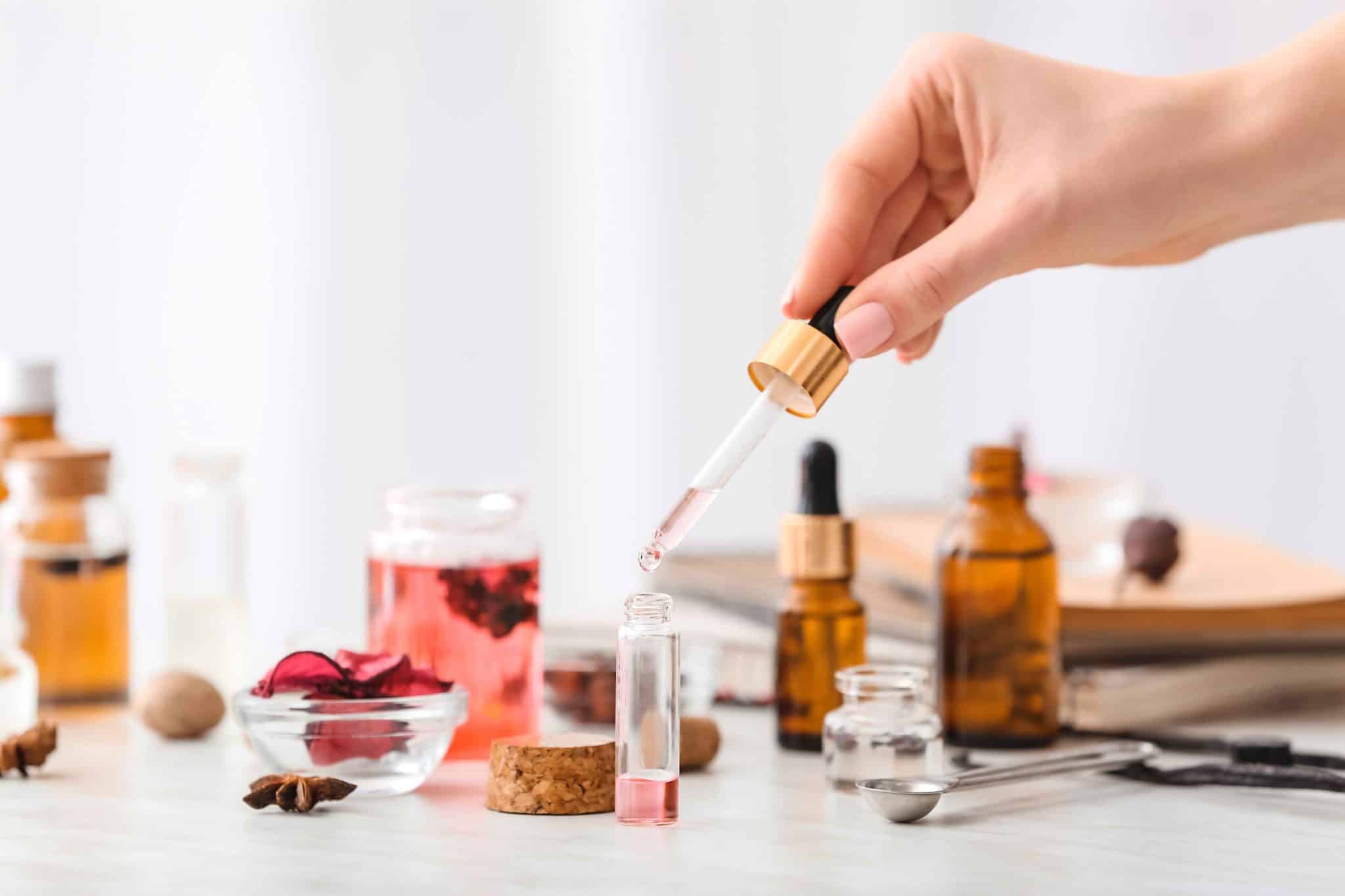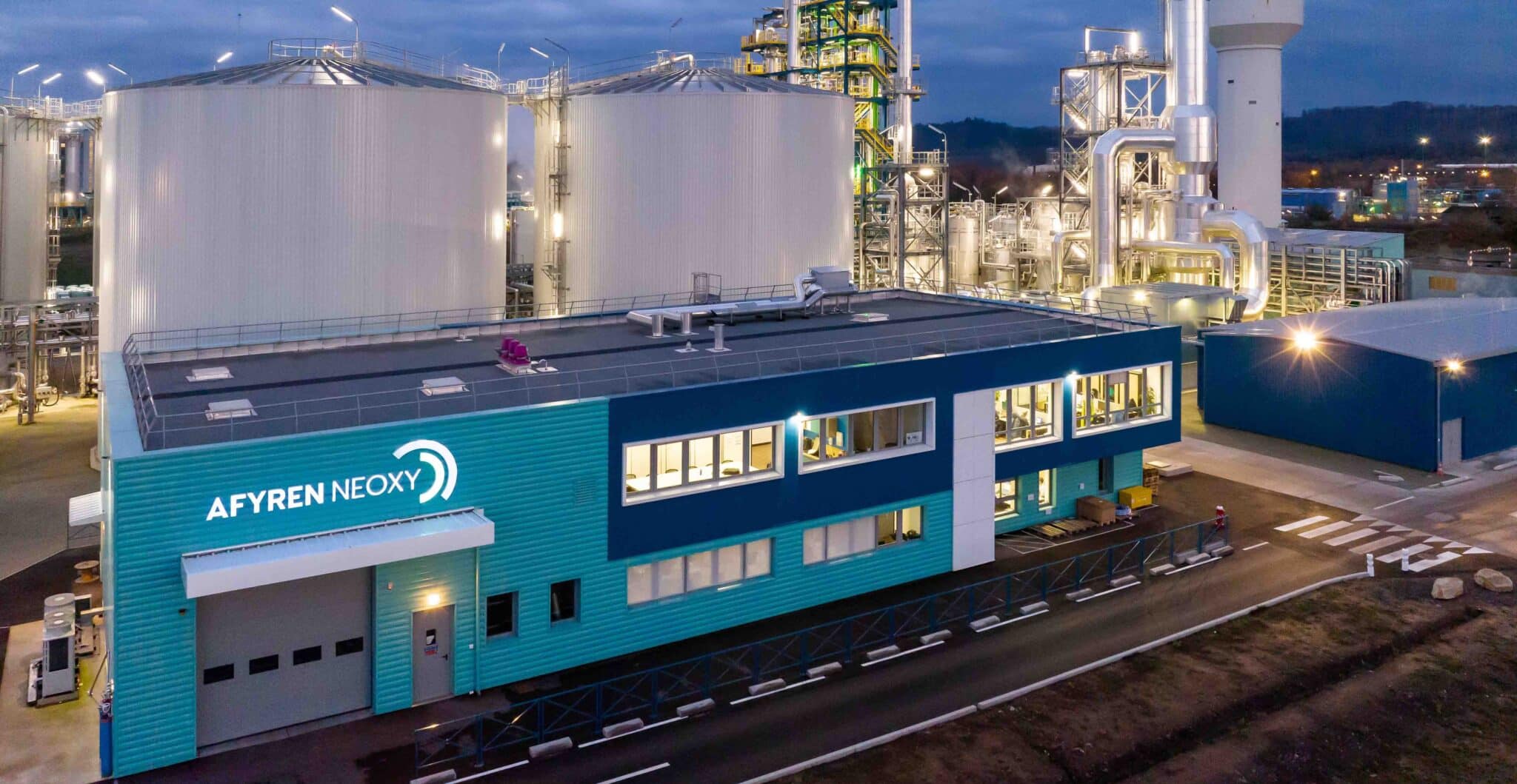Retour page d’accueil • Where Nature Meets Performance: The Creative Vision of Delphine Thierry
Where Nature Meets Performance: The Creative Vision of Delphine Thierry
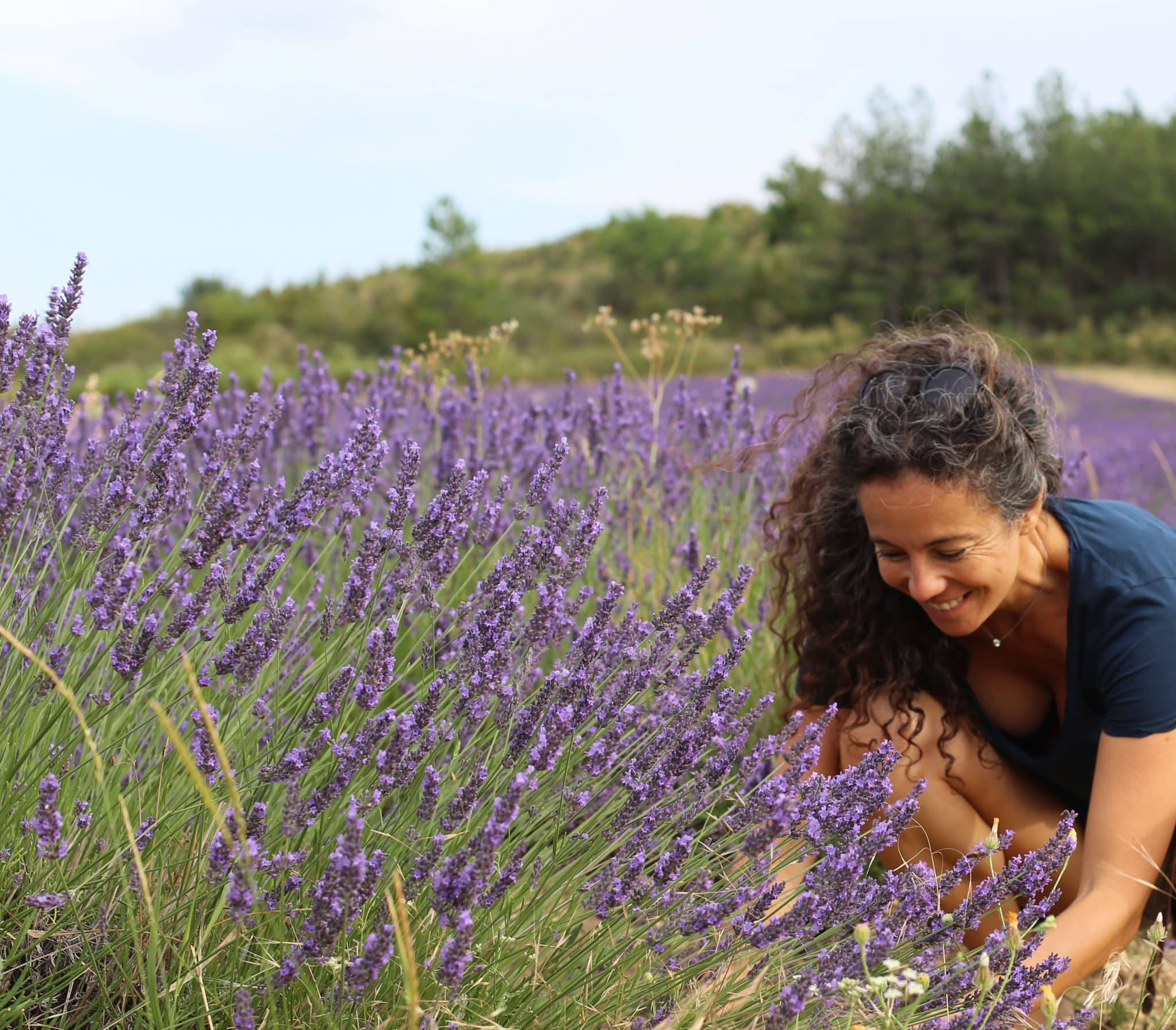
Afyren:
How would you describe your creative experience when developing these perfumes?
Delphine T :
I decided to start my own company to gain true freedom in choosing my projects – to fully express my passion and creativity without having to navigate conflicting constraints that often restrain the creative process.
This independence has allowed me to collaborate with brands that dare to take risks, defining luxury and beauty not through grand marketing strategies, but through the richness of materials and the uniqueness of their concepts.
Each project is a different journey, with multiple sources of inspiration. Living in the heart of nature, everything around me and everything I experience inspires me to build a bridge between the emotions a client’s brief evokes and how I translate them into scent
Inspiration can even come from a book – something that transports you into another world, awakening subtle and delicate sensations. I engage all my senses: hearing, sight, touch… they all play a role in the creative process. The sources of inspiration are truly endless.
Afyren:
What are the main challenges you currently face when creating perfumes?
Delphine T :
The first challenge is personal: how can I reduce my own environmental impact while designing a fragrance? I strive to adopt responsible practices – from managing raw materials to limiting the use of “consumables,” which are numerous in a perfumer’s work.
For instance, when I begin a series of tests, I plan them carefully to minimize the number, using only what’s necessary in terms of pipettes, bottles, raw materials, and alcohol. This not only reduces waste but also streamlines the creative process.
In the EU, up to 80% of a product’s environmental impact is determined during the design phase.
The second challenge lies in selecting raw materials for their olfactory qualities while ensuring they are as respectful as possible of life – safe for both humans and the environment.
Since I handle concentrated natural and synthetic ingredients all day, protecting myself is the first step. Of course, this challenge extends to regulatory constraints, which are constantly evolving.
When it comes to sourcing, I’ve worked since the beginning of my business with a French partner globally recognized for the quality and traceability of its natural raw materials, the Robertet Group. Their expertise and support allow transparent work without compromises.
Over the past fifteen years, this partnership has accompany me during the rise of natural perfumery with a highly qualitative approach – showcasing
and enhancing natural materials in the best possible way. Today, the 100% natural trend has its limits: it can’t always express every creative direction and may
struggle to compete with classic compositions that rely on powerful synthetic ingredients.
That’s why I often recommend a hybrid approach to my clients; one where natural raw material remain dominant, bringing sophistication, depth, and a “living”
vibration, while synthetic molecules provide structure, balance, and performance.
Another challenge is guiding consumers: even if they claim to want 100% natural fragrances, they’re not always ready to accept the sensory change that comes with it. Part of our mission is to take them on this olfactory education journey.
Afyren:
Is it easy to find sustainable raw materials?
Delphine T :
That really depends on the supply chain. European channels, for example, are highly regulated, which guarantees strong sustainability but offers a more limited scent palette. My long-term partnership with my supplier, who has a very thorough CSR framework, allows me to access a wide range of sustainable materials.
I’ve also learned to let go of certain ingredients, either because of health concerns or unsustainable cultivation practices.
At first, it felt restrictive, but it actually became a source of motivation and innovation. Today, if I’m not fully confident in the quality or safety of a raw material, I simply don’t use it. It’s a form of creative minimalism that I find deeply stimulayting.
Afyren:
You recently collaborated with AFYREN to create two different fragrances for candles using natural ingredients. How did that collaboration go?
Delphine T :
I really felt that your mission aligns with efforts to decarbonize the fragrance industry and that’s what drew me to this project. I immediately felt confident working with you, and the collaboration went very smoothly.
This was quite a unique project: the first step was to discover the ingredient itself – to smell it with a fresh perspective, let it inspire me, and imagine what could be built around it. Centering a perfume around a single raw material is something I particularly enjoy. Then came the technical constraints specific to candle formulation, before creating something truly original to present to you.
Afyren: What are the advantages of AFYREN’s 100% natural esters, and how do you feel about the final products, the candles?
I didn’t compare the natural esters to their synthetic equivalents, but they delivered exactly the performance I was aiming for. The biggest advantage of AFYREN’s products is that they can be used in fully natural formulas, expanding my palette of possibilities.
I found both candles to be beautifully strong, with an elegant final result. They stayed very true to the original fragrances we designed, both distinct from one another. In both cases, we used molecules I previously couldn’t access in 100% natural form and AFYREN’s ingredients filled that gap perfectly.
The first candle was built around vetiver acetate, which brings a raw, woody, earthy warmth. The second featured ethyl butyrate, often used in fruity compositions, even in small amounts, it’s an essential element of the formula.
Afyren: What natural scents would you like to have?
If I could dream of having certain scents available in natural versions, they would probably include oud wood and certain longlasting molecules like ambery, deep, or marine notes.
Afyren: In a few words, how would you summarize our collaboration and the final result?
Being part of this project was truly an opportunity to push boundaries together. I loved that you reached out to me for this and it was both a stimulating and deeply rewarding experience.
Last news

AFYREN confirms drawdown of €7 million in previously secured financing for its subsidiary AFYREN NEOXY
News post Press release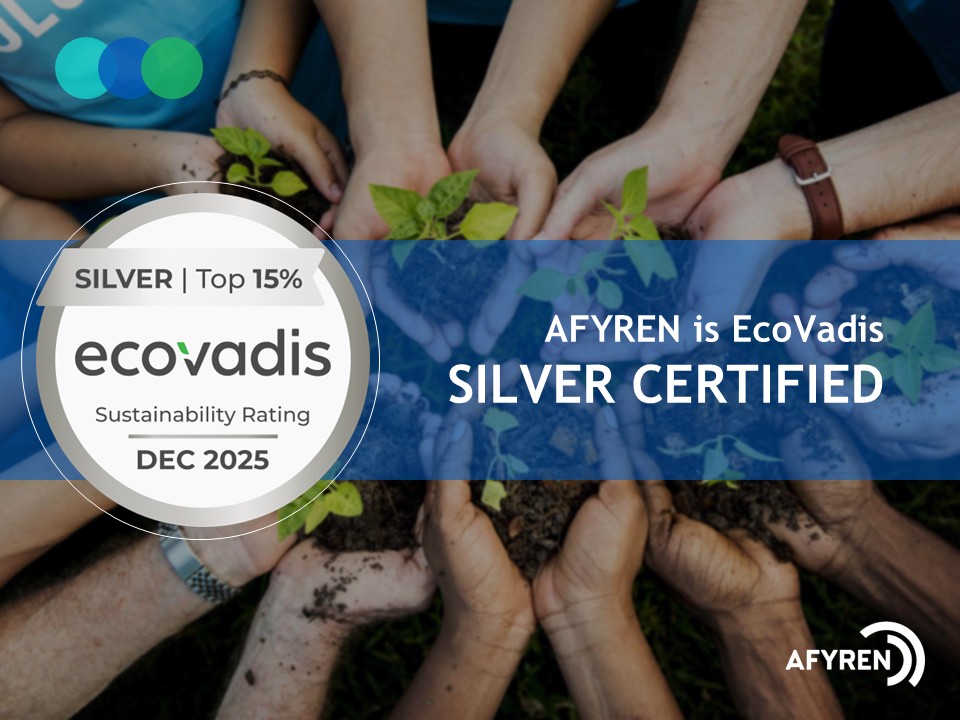
AFYREN awarded Silver Medal by EcoVadis for CSR performance, ranking in the top 8% worldwide
Press release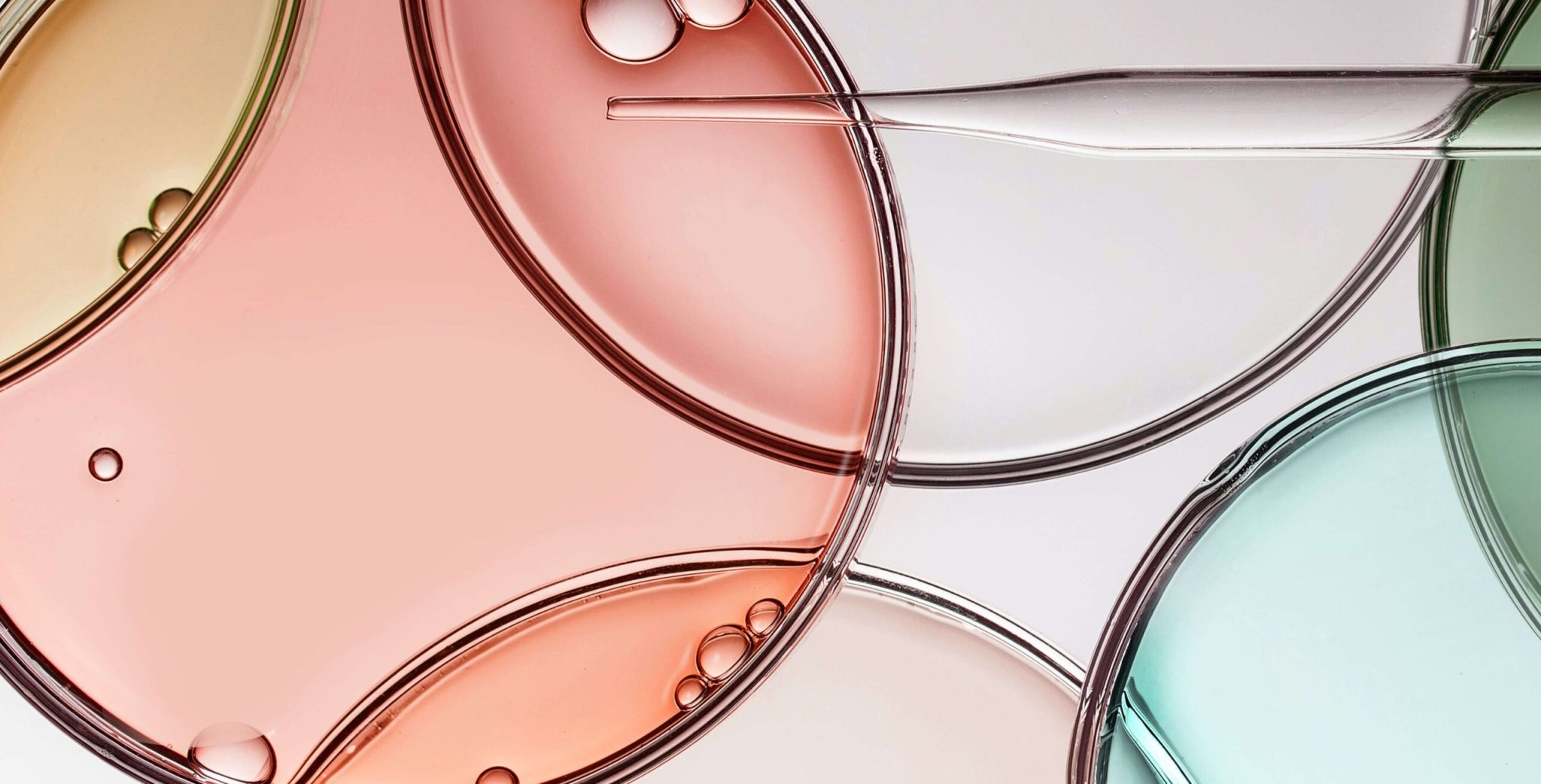
AFYREN and ESSE Skincare begin partnership to offer 100% natural cosmetic solutions with enhanced skincare performance.
Press release
AFYREN raises €23 million through share capital increase to finance optimization and expansion of unique biorefinery AFYREN NEOXY
Press release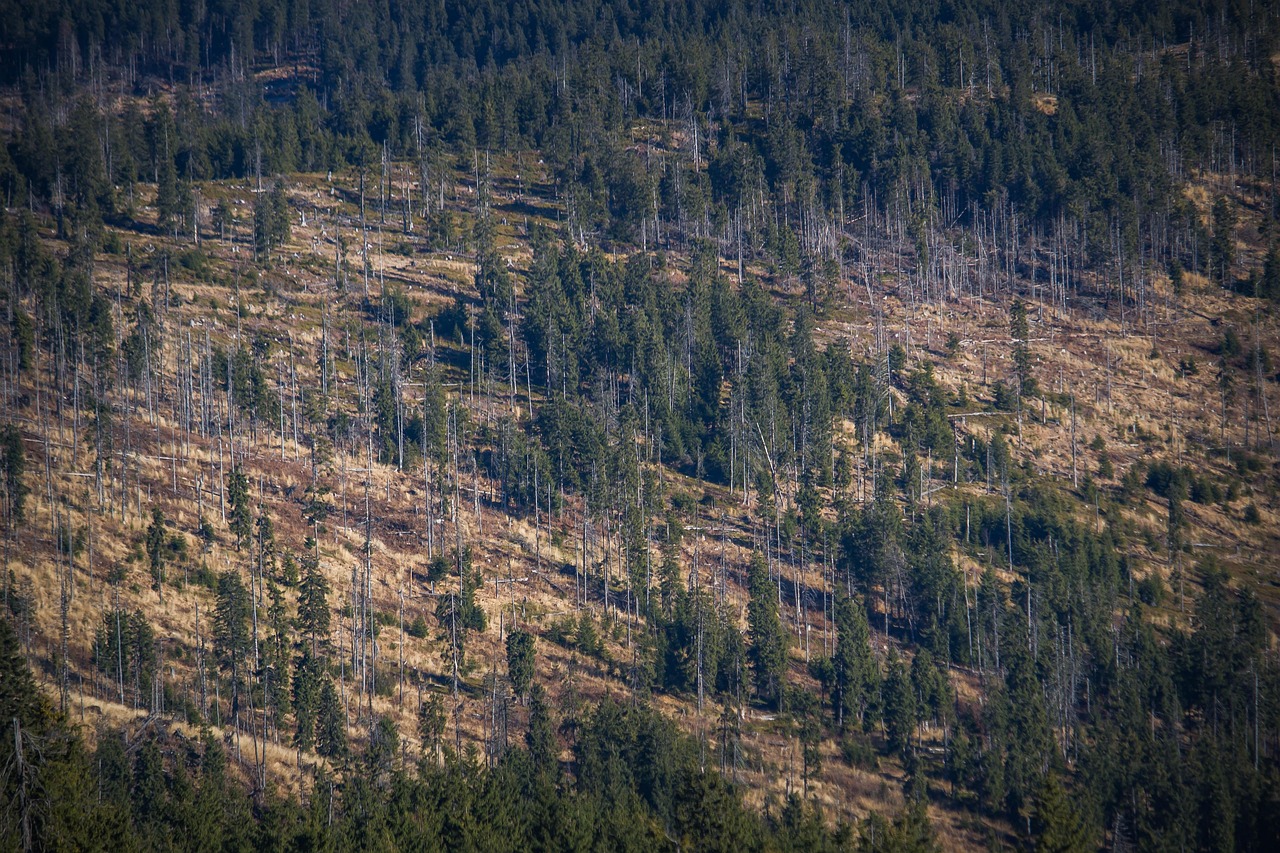
Deforestation – Turning compliance with EUDR into an innovation driver
Publication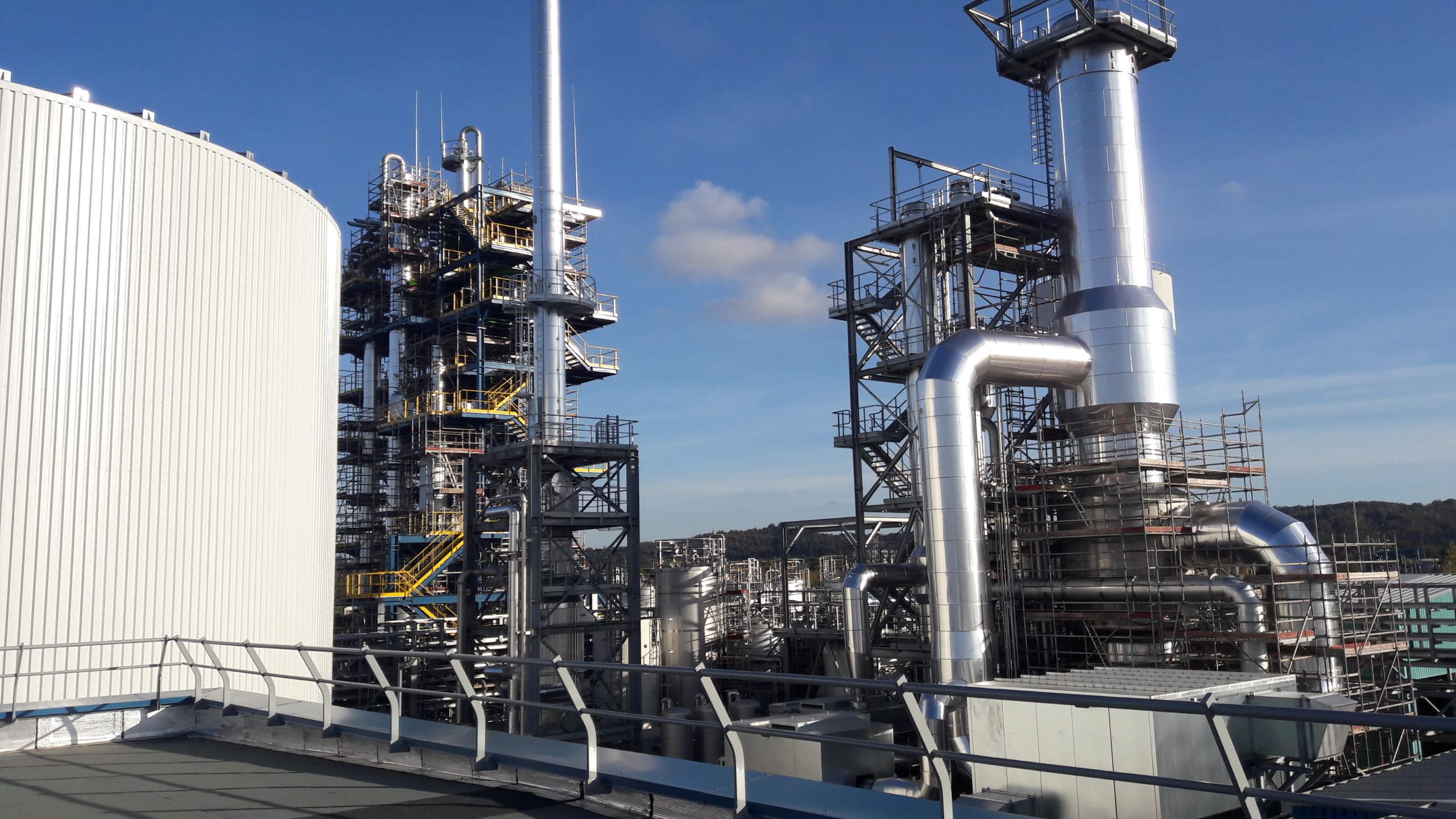
AFYREN receives €4 million in grants for AFYREN NEOXY and starts new performance-driven investment strategy
Press release